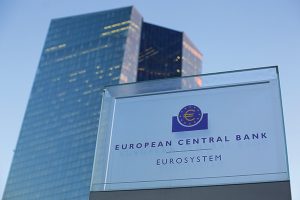Bloomberg
European Central Bank (ECB) Governing Council member Francois Villeroy de Galhau said uncertainty about the length of the current oil shock and the economic impact of Russia’s invasion of Ukraine mandate a cautious approach to monetary and budgetary policies in Europe.
The oil shock “is very strong in its intensity, we don’t know its duration yet,†the Bank of France chief said on France Inter radio. Compared with the Covid-19 pandemic, the crisis stemming from the war “is much less violent for economic growth, but it’s translating into more inflation because of
rising energy costs.â€
The economic impact of the crisis, which may shave as much as 2 percentage points in cumulated economic growth through 2024 for the euro zone, may require “targeted†government measures, Villeroy said. It doesn’t currently justify “whatever-it-costs†policies introduced two years ago to fight the deep recessions caused by the pandemic, he said.
The ECB unexpectedly accelerated its wind-down of monetary stimulus, signalling it’s more concerned about record inflation than weaker economic growth. ECB officials pledged to slow bond buying from the start of May, and said they could halt the program as soon as the third quarter. At the same time, they said a subsequent interest-rate hike wouldn’t be automatic.
“While we’re going to progressively take our foot off the accelerator, it’s precisely to avoid having to press on the brake after or tomorrow too brutally,†Villeroy said.
Any decision on interest rates might come later, based on data, and “there’s no automatism†between the end of the bond buying and higher rates, he said.
 The Gulf Time Newspaper One of the finest business newspapers in the UAE brought to you by our professional writers and editors.
The Gulf Time Newspaper One of the finest business newspapers in the UAE brought to you by our professional writers and editors.
